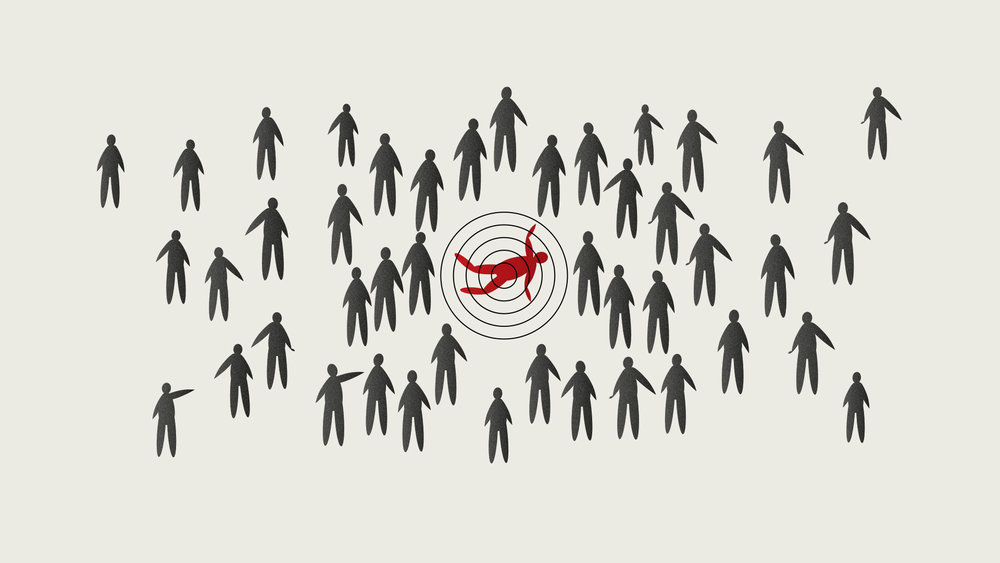Bystander Effect: Is This Why Employees Don’t Speak Up
John M.Darley and Bibb Latane popularised the term ”bystander effect” after studying the most unusual murder happened to Kitty Genovese. Genovese was at her apartment in Queens, New York when an attacker came and hit her. There were approximately 38 residents who safely watched her dying from their home apartment, but none seemed trying to stop the attacker or call the police. Since there was no help, Genovese died after 45 minutes of bearing the attack.
What is the bystander effect?
Bystander effect, also known as bystander apathy, refers to an element of social psychology where individuals are less likely to help a victim of unethical behaviour or crime when other people are present. The greater the people or witnesses gather, the less likely bystanders will come to help.
According to Darley and Latane, one of the main reasons why this effect happens is due to diffusion of responsibility, a phenomenon related to the bystanders’ sense of responsibility to aid which decreases when there are more witnesses present. In other words, diffusion responsibility occurs when bystanders feel that the other bystanders will respond to the emergency situation and render appropriate assistance.
Bystanders at the workplace
You might not realise it, but the bystander effect often occurs in our everyday life. For example, instead of calling an ambulance, people are busy taking a video or picture when an accident happens. Or, instead of reporting to upper management, coworkers silently become the witness of harassment, discrimination, racism, or bullying done to their teammates.
Hussain et al. research at Academy of Management revealed that employees who often had redundant information about a workplace topic felt a diffusion of responsibility, thus, they are less likely to report to the upper management (HR management). Testing three different cases with a variety of methods, the results showed that bystander effect was particularly due to a sense of mind where employees who know the incident do not report to a manager because they believe that other witnesses will report to the manager.

Hussain et al. also added that employees who witness the incident will likely be silent because there might be another witness who knows the information that has stronger relationships with the manager. In short, employees can be quiet about negative workplace occurrence not only because of the sense of mind but also workplace relationship.
Likewise, the bystander effect might also occur on other occasions of workplace problem. For example, employees might be silent about dangerous workplace harassment or discrimination just because other employees have the same knowledge about the wrongful act. As a result, an individual employee will be less likely to take initiative to voice the shared thoughts of the group. An individual employee might also be quiet because of low self-efficiency in helping the victim, wrote Hellemans et al.
How to minimise the bystander effect?
Clearly, the bystander effect can subside performance and productivity. Therefore, there should be an act to help employees speak up and be a non-bystander. Here are two critical ways to prevent workplace bystander effect from occurring.
Bystander training
Stefanie Johnson advise that that should be training for bystanders to take action. Bystander training emphasises that bystanders are but one mechanism for responding to difficult situations. To do this, employers can provide a comprehensive list of resources and compliance officer and a detailed discussion of the organisational complaint system, particularly for bystanders who would prefer private discussion when sharing their concerns.
The support is vital with respect to the more serious issues, including safety violations, discrimination, criminal and other illegal behaviours. Many bystanders hesitate to act, thus, this training will likely open their eyes to not being quiet about office problems.
Managers awareness
Another way to help reduce the effect is to train managers. Hussain et al. advised that managers must be aware that employees are less likely to initiate communication with managers about issues that are well-known among other employees. Additionally, managers can help decrease diffusion of responsibility by giving praise and expressing gratitude to those who contribute to reporting about something unlawful, and welcoming every different perspective of those reports.
SOURCE: HRINASIA
|
Training Program  Internationalize the human resource management capabilities of HR professionals in Vietnam Opening Date: March 19 , 2020 in HCMC
Opening Date: March 26, 2020 in Hanoi
|










